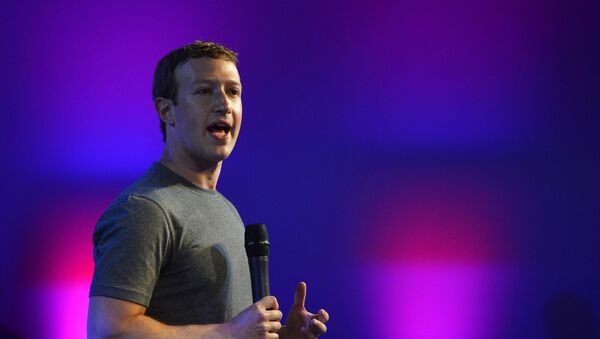The question turned out to be fifth most popular request.
A Trump presidency is generally considered by Silicon Valley to be anathema to its consensus pro-immigration, pro-privacy and pro-expansion of the internet policies.
This week Zukerberg spoke out strongly against policies taken out of the Trump playbook. "I hear fearful voices calling for building walls and distancing people they label as ‘others,'" he said at a Facebook F8 open conference, never referring to the candidate by name.
"I hear them calling for blocking free expression, for slowing immigration, for reducing trade, and in some cases, even for cutting access to the internet."
This is the first time the Facebook head has publicly taken a side in politics, though Zuckerberg has previously donated to various election campaigns. If the company adopted an overt anti-Trump policy, access to its 1.04 billion audience worldwide could influence the outcome of the US presidential election in November.
The social network can block or promote any content it wants.
"Facebook has the same First Amendment rights as the New York Times. They can completely block Trump if they want," claimed UCLA law professor Eugene Volokh.
Taking the example of the First Amendment, Facebook can block any information it wants, unless the network is publically supporting a competing candidate's campaign, an activity classified under contributions, which would be restricted.
The ethical issue beyond the legal aspect asks, whether people's access to information can be blocked, after providing them with the ability to freely customize their content; would that be a form of censorship, creating an illusion of the open internet?



